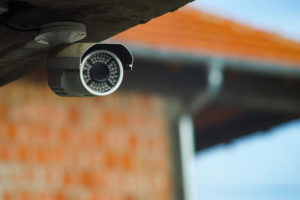
Pennsylvania senators and Jewish officials announced on Jan. 27 $4.5 million in budgetary allocations in support of the state Non-Profit Security Grant Program for the 2021-2022 fiscal year.
The grant, administered under the Pennsylvania Commission on Crime and Delinquency, was created in 2019 under Act 83 as a five-year program to bolster the security infrastructure of nonprofit spaces in the commonwealth. Since its inception, the grant has allocated $14.5 million.
For Jewish organizations shaken by the Colleyville, Texas, hostage crisis at Congregation Beth Israel, the grant could offer solace, in addition to security provisions.
“As hate crimes have markedly increased in recent years, and white supremacist groups have proliferated, the need for security upgrades at our communal institutions was apparent,” Pennsylvania Jewish Coalition Chairman Marc Zucker wrote in a press release.
The grant was created following the Tree of Life synagogue complex shooting in Pittsburgh in 2018 and is available to all nonprofits, such as synagogues, mosques, churches and community centers vulnerable to hate crimes.
The announcement of the budget allocations was unrelated to the Colleyville crisis but underscores the grant’s urgency, Zucker said.
“That crisis illustrated how critical it is to have adequate funding for institutions to protect their security,” Zucker said. “While the decisions are in the hands of the governor and the legislature, we’re hopeful that this [crisis] properly focused attention on the risks faced by synagogues, churches and other institutions.”
Because of the ongoing violence targeted at Jewish institutions, the demand for grant money has been “huge,” said Robin Schatz, Jewish Federation of Greater Philadelphia director of government affairs.
In 2021, the NSGP had an allocation of $5 million; there were more than $20 million in requests, Schatz said.
According to PJC Executive Director Hank Butler, only 30% of the 2020-’21 applicants received funding, or about 130 of 429 applicants. The year before, 14% of the applicants, 113 out of 807, received funding from the $5 million in allocations.
The unmet demand in past years is frustrating to Schatz and Butler, both of whom helped to write the legislation that called for the grant.
In the past, it’s been difficult for the grant to have a line in the governor’s division of the budget, so finalizing the grant allocation budget is a scramble.

Schatz speculated that about 70% of the 2019-’20 grant recipients were Jewish, but that percentage dropped in the 2020-’21 fiscal year. Because of the Colleyville crisis, Schatz suspected the number of Jewish recipients will increase again this year.
NSGP grant requests must demonstrate the need for funds to bolster their security, according to Ilene Cohen, a grant writer and consultant.
“The state funds were created for any organization that has the potential to be or has been the victim of hate crime,” she said.
The umbrella of what can be considered a hate crime is wide, Cohen said. Synagogues that experienced a Zoom bombing, vandalism or even a child in the congregation being bullied at school for being Jewish can be reasons for institutions to apply for the grant.
A September FBI report stated that 60% of U.S. hate crimes in 2020 targeted Jews, despite Jews making up only 2% of the population.
Most often, institutions request funds for parking lot lighting, surveillance equipment, cameras, access control systems and electric doors, and key fobs.
In 2020, Federation Housing, Congregation Or Ami in Lafayette Hill and Ahavas Torah in Rhawnhurst were among the 38 Philadelphia-area Jewish organizations and 113 successful applicants to receive funding. Most were awarded about $25,000 to invest in cameras and bulletproof windows.
The Jewish Federation is providing grant-writing assistance for organizations like those seeking funds.
“The [Jewish] Federation has enabled the organizations, the agencies and the synagogues that are interested in pursuing this funding to get some assistance in making that happen,” Cohen said.
In addition to Pennsylvania’s NSGP, the federal NSGP, similar to its Pennsylvania counterpart but administered by the Department of Homeland Security and FEMA, will have allocations announced later this month.
The application process for the Pennsylvania and national grants differ greatly. While the commonwealth’s application process is rolling, and funds are allocated on a first-come, first-served basis, national applications are scored by DHS/FEMA based on need.
For the 2020-’21 fiscal year, Congress appropriated $180 million for nonprofits, but Schatz is hopeful that this year’s allocations will double to $360 million.
The commonwealth’s 2023 NSGP is already drafted, with Jewish Federation leaders having already requested $5 million. In the future, Schatz would like the budget increased to $10 million and for the grant to be extended for another five years. Schatz said the region’s entire congressional delegation has signed on to a letter requesting the increased allocation.
“We don’t think we can get it written in perpetuity,” Schatz said. “Just because, hopefully, there will come a day when we won’t need those funds.”
[email protected]; 215-832-0741




